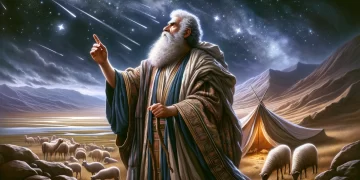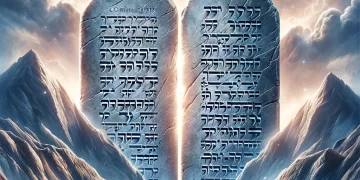Views: 19
Date of Events & Date of Writing & Primary Audience
- Date of Events: Traditional view holds that the events of Genesis 1:1-2:3 describe the creation of the world approximately 4000-5000 BC, though these dates are subject to interpretation and debate.
- Date of Writing: The Book of Genesis is traditionally attributed to Moses and is believed to have been written around 1446-1406 BC during the Israelites’ exodus from Egypt.
- Primary Audience: The primary audience was the Israelites, providing them with a foundational understanding of their origins and their relationship with God.
Story Summary
- Summary: Genesis 1:1-2:3 recounts the creation of the world in six days by God, culminating in the creation of humanity and the sanctification of the seventh day as a day of rest.
Story Background
- Background: The narrative was composed in a cultural context where many ancient Near Eastern creation myths existed, contrasting with these by presenting a monotheistic, orderly creation process by one sovereign God.
Story Highlights
- Highlights:
- Day 1: Creation of light, separating light from darkness (“Let there be light”).
- Day 2: Formation of the sky, separating the waters (“Let there be a vault between the waters”).
- Day 3: Gathering of waters, emergence of dry land, and creation of vegetation (“Let the land produce vegetation”).
- Day 4: Creation of celestial bodies to separate day from night (“Let there be lights in the vault of the sky”).
- Day 5: Creation of sea creatures and birds (“Let the water teem with living creatures”).
- Day 6: Creation of land animals and humanity in God’s image (“Let us make mankind in our image”).
- Day 7: God rests, blessing and sanctifying the seventh day.
Story Purpose
- Purpose: To establish God as the sovereign Creator of the universe, highlight the orderliness and goodness of creation, and set the foundation for the Sabbath rest.
Story Theme
- Theme: The sovereignty of God in creation, the goodness of the created order, and the unique role of humanity made in the image of God.
Jesus Connection
- Jesus Connection: Jesus is identified as the agent of creation in the New Testament (John 1:1-3, Colossians 1:16). The rest on the seventh day prefigures the rest and redemption found in Christ (Hebrews 4:9-10).
Kingdom Connection
- Kingdom Connection: The creation narrative sets the stage for understanding God’s Kingdom, where God reigns as King over all creation. Humanity’s role is to steward creation, reflecting God’s rule and dominion.
Archaeology or Scientific Discovery
- Archaeology/Scientific Discovery: While direct archaeological evidence for the events of creation is not available, studies of ancient Near Eastern texts (e.g., Enuma Elish) provide context for understanding the Genesis creation account as a theological polemic against polytheistic views.
Hebrew Meanings of the Keywords
- Keywords:
- “Bara” (ברא) – “create,” used exclusively for divine creation, emphasizing God’s unique power to bring something into existence from nothing.
- “Tohu va’vohu” (תהו ובהו) – “formless and void,” describing the chaotic state of the earth before God’s creative work, indicating a lack of order and emptiness.
- “Shabbat” (שבת) – “rest,” indicating cessation from work and sanctification of the seventh day, signifying completion and divine rest.
Kingdom Teaching(s)
- Kingdom Teaching(s):
- God’s sovereignty and authority over all creation establish Him as the ultimate King.
- Humanity’s creation in God’s image confers dignity and a mandate for stewardship and dominion, reflecting God’s Kingdom principles.
- The sanctification of the Sabbath introduces the concept of holy rest, pointing towards the ultimate rest in God’s eternal Kingdom.
By examining the Creation narrative through these various lenses, we see a comprehensive picture of God’s purposeful, sovereign act of creation, its theological significance, and its implications for understanding the Kingdom of God.
![Creation of the World [Genesis 1:1-2:3]](https://kingj.tv/wp-content/uploads/2024/05/DALL·E-2024-06-01-23.50.14-A-vibrant-and-majestic-landscape-format-image-depicting-the-Genesis-story-of-the-Creation-of-the-World-1140x570.webp)


![Isaac’s Birth and Sacrifice [Genesis 21:1-7; 22:1-18]](https://kingj.tv/wp-content/uploads/2024/04/Isaacs-birth-and-sacrifice-from-Genesis-21_1-7-22_1-18-360x180.webp)
![Cain and Abel [Genesis 4:1-16]](https://kingj.tv/wp-content/uploads/2024/04/Genesis-story-of-Cain-and-Abel-360x180.webp)
![The Great Flood [Genesis 6:1-9:17]](https://kingj.tv/wp-content/uploads/2024/04/The-Great-Flood-from-Genesis-6_1-9_17-360x180.webp)





